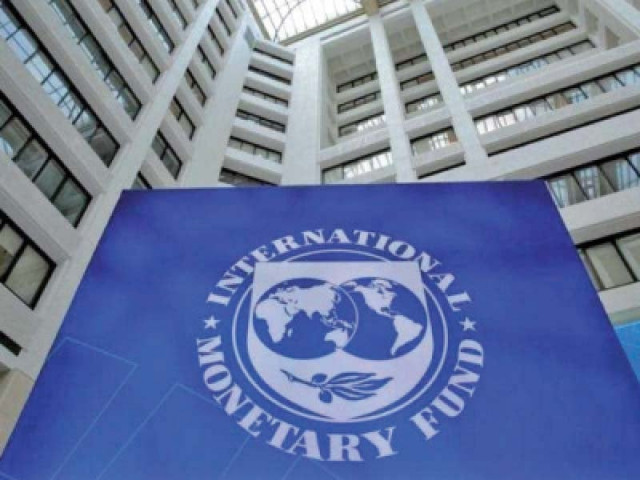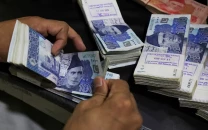Pakistan must implement IMF’s prescription
It should not ignore restructuring to keep the economy afloat

A sigh of relief is felt across the board nowadays as fears of default become relics of the past, at least for now. Pakistan’s global bonds and stock markets are on the rise, recovering from pitifully low rates. Resuming the International Monetary Fund (IMF)’s programme was instrumental in moving away from default pricing towards distressed pricing, signalling a positive shift in the country’s economic trajectory.
We can start with paying off the government loans, with approximately $100 billion in outstanding debt requiring not just rollovers but also repayments. While the current debt levels are alarmingly high, the government is making efforts to marginally reduce the debt size every year, aiming for debt sustainability. Critics argue that debt is acceptable as long as the economy grows, but it should not be a borrowed growth. Instead, it should be earned through increasing export potential, value addition, and productivity growth.
Pakistan faces the challenge that two bad years push it five years backward, necessitating significant effort and political will to address economic issues. While optimism is appreciated in dispelling fear and speculation, it is crucial that the intent is genuinely differentiated from mere political slogans. However, with current debt and interest levels, there is hardly any money left for social spending and debt repayment, leading to the possibility of inadequate Public Sector Development Program (PSDP) spending and targets of fiscal surplus.
Critics have pointed out the paradoxical situation of raising tax rates on salaried class and middle-income individuals while providing substantial funds to parliamentarians under the guise of Sustainable Development Goals (SDGs) just before elections. Although these funds may be intended for the social wellbeing of constituents, it raises concerns about the allocation of resources.
In the currency markets, the government has withdrawn official control over imports, allowing the market to function. The annual Current Account Deficit is being kept below $5-6 billion by allowing a 25% increase in imports, but commercial banks now carry the responsibility of generating their own dollar inflows to match import requirements. As a result, the Pakistani Rupee (PKR) is self-adjusting on a daily basis.
The reduction in petrol and diesel prices before the last election was seen as a gift from the government. While it received criticism from Oil Marketing Companies (OMCs) due to potential inventory losses, the currency remained stable until mid-July, likely due to efforts to keep fuel prices down and encourage conversion. However, pending LCs and imports must now be honoured, leading to banks rushing to buy dollars, affecting the interbank rates.
The most significant challenge lies in increasing tax revenues by widening the tax base. While efforts are being made in this direction, more needs to be done to achieve an acceptable tax-to-GDP rate in the medium term. Controlling the retail, real estate, and agriculture sectors, often considered “sacred cows,” regardless of political support, could contribute significantly to increased tax revenue.
Efforts should also focus on reducing inefficiencies in the power sector, including theft, transmission and distribution losses, and increasing recovery rates. Timely payments to Oil & Gas exploration companies will encourage import-substituting energy production, while honouring contractual terms with foreign investors will attract more investment. By curbing fuel smuggling across borders, the government can save significant amounts annually.
Privatisation of State-Owned Enterprises (SOEs) is another crucial step. Letting the private sector run these organisations will lead to increased efficiency, reduced subsidies, higher tax revenues, better foreign investment, and improved allocation of capital towards productive resources. Policy makers must relinquish control and hand over management to the private sector, avoiding delays in privatisation.
The next government must be evaluated based on its performance in areas such as growing value-added exports, ending subsidies to private sectors, widening the tax base, reducing losses on SOEs, attracting foreign direct investment, improving SBP reserves, monitoring expenses closely, promoting public-private partnerships, and controlling population growth.
Pakistan’s economy is like a sick patient who disregards prescriptions and ends up in the emergency ward with deteriorating conditions. It is crucial for Pakistani family members to enforce timely treatment before it’s too late. The road ahead is rocky, but it must be travelled to ensure a better future for all.
THE WRITER IS AN INDEPENDENT ECONOMIC ANALYST
Published in The Express Tribune, July 24th, 2023.
Like Business on Facebook, follow @TribuneBiz on Twitter to stay informed and join in the conversation.



















COMMENTS
Comments are moderated and generally will be posted if they are on-topic and not abusive.
For more information, please see our Comments FAQ